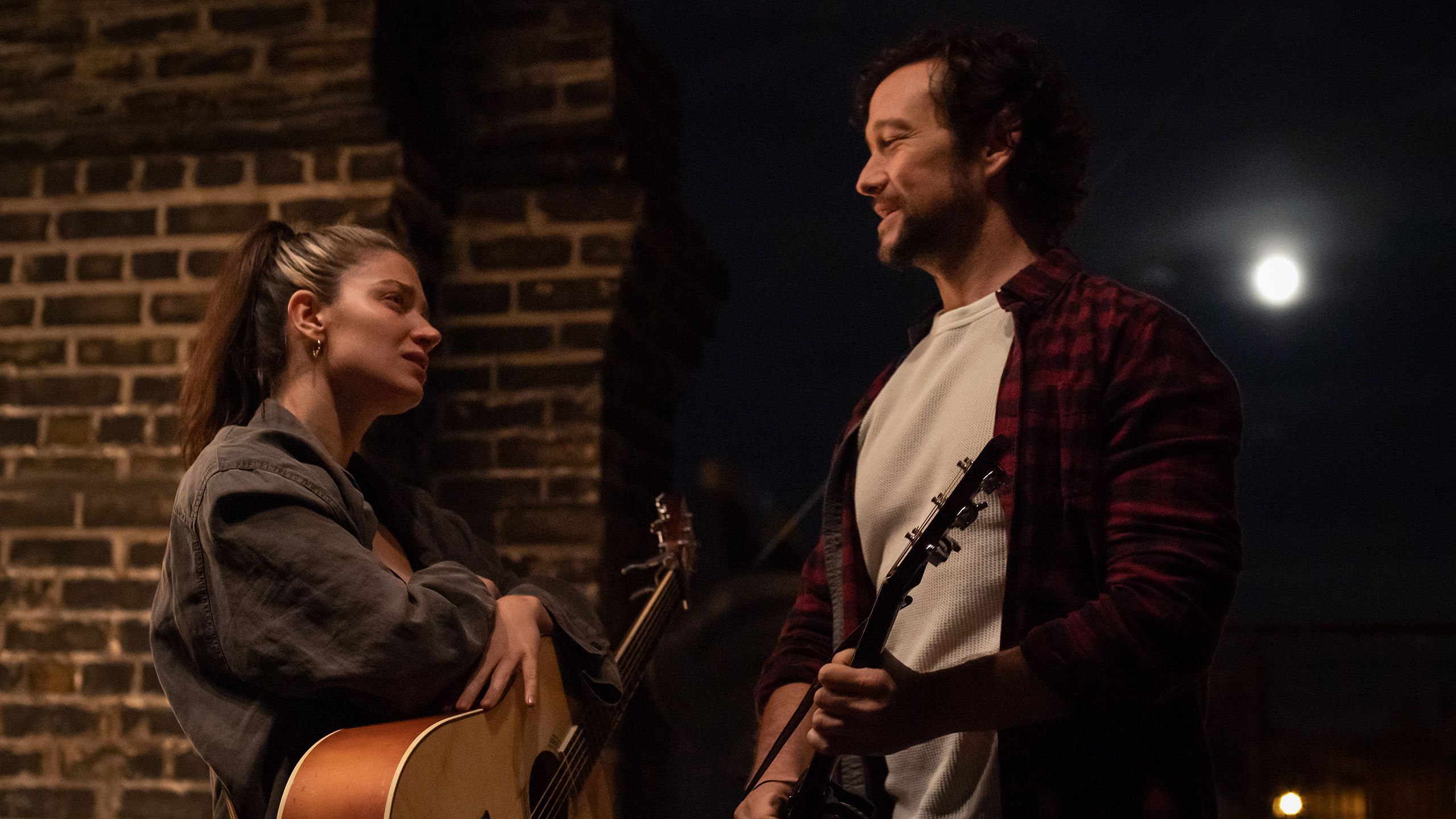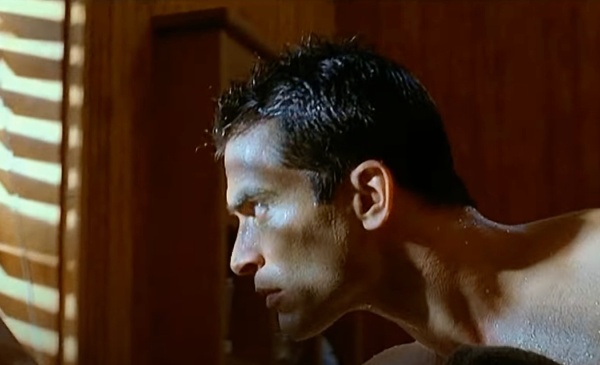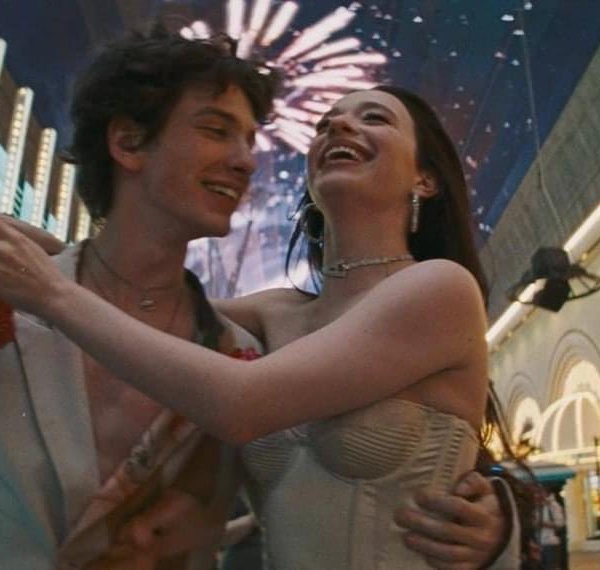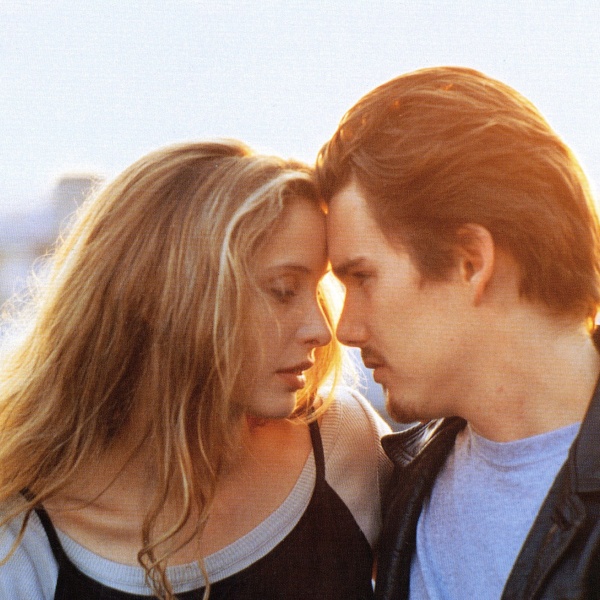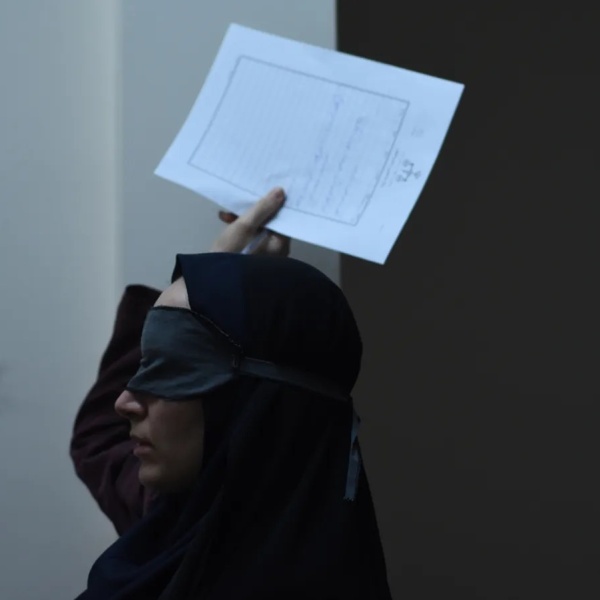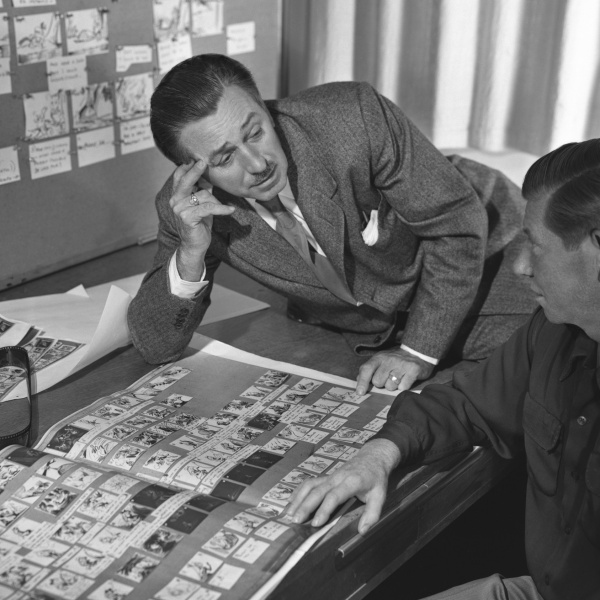“Flora and Son” was an impossible movie three years ago. From “Once” to “Sing Street,” director John Carney has found different ways to bring not just song but the joy of creating music to characters who desperately need it. But he also continually wants to complicate what music is and can be to someone — not every breakthrough is meant to be an elaborate song and dance and not every piece of music can be enough to push someone in the right direction.
The idea of the woman who would become Flora (Eve Hewson), seeking an escape from her troubled son Max (Orén Kinlan) by learning guitar, felt very contemporary with one problem: Carney couldn’t see her actually leaving her flat to take guitar lessons. So he tried to write a version where she took video lessons on her laptop from failed songwriter Jeff (Joseph Gordon-Levitt).
“I had written 20 pages of the idea in fits and starts when I was making ‘Modern Love’ in America,” Carney told IndieWire on the Filmmaker Toolkit podcast. “I got to the stage where she opened her laptop and she met this guitar player who was going to teach her… I actually just wrote the introduction bit where he pitches how he’s going to teach and I think I stopped then and I was like, ‘I’ve kind of cornered myself here.’”
The need to make the story modern and plausible ran up against the cultural awareness of video calls over the Internet. Carney said that he felt, at the time he started writing, the use cases were more limited to traveling and long-distance relationships. Then there was also the static nature of video calls. Carney didn’t think people would accept going to a big movie theater screen to look at someone looking at someone else inside a smaller screen.
Lockdowns all over the world in 2020 changed that calculus for Carney. “Three months into [the COVID-19 pandemic], we were all conditioned completely,” Carney said. “It was like part of our brain had changed. And then I reread the script. I was like, ‘This totally works now.’ The very thing that I was going, ‘Nah, I’m going to pause this writing and put it away for four months,’ the very thing that blocked me, became the very thing that made this movie universal.”
What attracted Carney to the idea, however, wasn’t the appeal of universally catchy songs. “Flora and Son” wants to meet its characters where they are, with all their limitations as songwriters and musicians (Flora is, after all, only just learning the guitar). It creates an exciting musical challenge for Carney and his longtime songwriting collaborator Gary Clark: how to write a mediocre song that evolves into a banger over the course of the film.
“The days of musicals being full of tons of the best songs ever, I think, are kind of past us,” Carney said. “I’d like to develop the stories and the use of music. So that it isn’t anymore just about atmosphere and fun or the best song ever, but it’s about [the fact that] music can be the worst thing for some people in life. Music can be a saving thing. Music can be a disaster for relationships. Music can be in a wake when somebody dies. It can be at a wedding. It can be a lullaby to get your kid to go to sleep. It doesn’t just have to be Judy Garland or winning Grammys or ‘A Star Is Born’ type stuff.”
Carney structured both the songs and the character of Flora to unfold and evolve over the course of the film as she becomes more musically capable — although perhaps most impressively as a producer, encouraging her teacher and her son to make better songs. There’s something powerful that connects audiences to characters and gets them to embrace characters’ contradictions as soon as they’re performing music, according to Carney.
“Like if you take ‘Tár,’ for example, just the fact that she’s a conductor changes everything in that movie. She could have probably done numerous things. It’s the fact that she’s a conductor. The second you put a guitar on somebody’s back or a baton in their briefcase, the second you give them that prop, you just have a strange, weird sympathy with the characters because as musicians or singers or conductors, there’s some part of them that makes them weird and different,” Carney said.

Carney’s desire to embrace the glorious weirdness and furtive desires of characters who don’t necessarily get movies made about them opened up a lot of freedom, on his end, to start writing songs that were “very naive.” Then Clark could “rephrase them in a catchier way and make the experience pleasant. Because it has to be pleasant, because it’s not a documentary,” Carney said. “If you really tell the story about ‘Spinal Tap,’ those [songs] would be just truly awful. Like, unlistenable. But they made a very smart decision that, ‘We’re not making a documentary.’ The songs have to be as good as in any musical, and they are.”
Still, the songs of “Flora and Son” emerged out of a desire to write music to the characters and avoid the siren call of pop music trends. Flora finds a love for the guitar by watching Joni Mitchell on YouTube; Max’s interest in rap and EDM is fairly diffuse; and Jeff the guitar teacher’s go-to example is a Tom Waits song. Carney wanted each character’s taste to represent their essential, wonderful weirdness without making them too self-aware or overly articulate.
“I don’t really listen to pop music anymore,” Carney said. “And it struck me the other day, like, I wonder what it’s like to be 14 or 15 and have Taylor Swift sing all these different ideas about your femininity and your youth and your socials and your situation. I think I’ve kind of written it off a little bit. I can’t imagine being 15 and having lyrics that were that kind of complex.”

Chasing simplicity led Carney through a couple of different genres of music — at one point Flora was much more into country — before finding styles inspired by ‘80s and ‘90s songs where electronic and acoustic could blend. The high number of constraints for the film’s music and its visual presentation came out of Carney’s desire to always do something true to character rather than fulfill the conventions of a typical musical.
“The second you make a movie that can be classified in a genre, it’s not original and it’s purely entertainment,” Carney said. “I’m not saying that you can’t have genre movies that are entertaining, but they’re not long-lasting for me. So, for example, I think horror is a terrible genre of movie. It doesn’t particularly appeal to me, yet there are four or five of the best movies ever made that are horror films, technically. But they’re not just horror films, is the thing. Only an idiot would think that ‘Rosemary’s Baby’ is really a horror film. It might be categorized or cataloged as a horror film for ease of reference, but it’s a family drama with humor and the terror of being alive. It’s black and funny and dark and it’s about nesting and it’s about having babies. It’s just so fantastic. But it looks like a horror movie. And I think all films should strive to defy the category in which journalists or fans would have them reside.”
“Flora and Son” is now streaming on Apple TV+.
